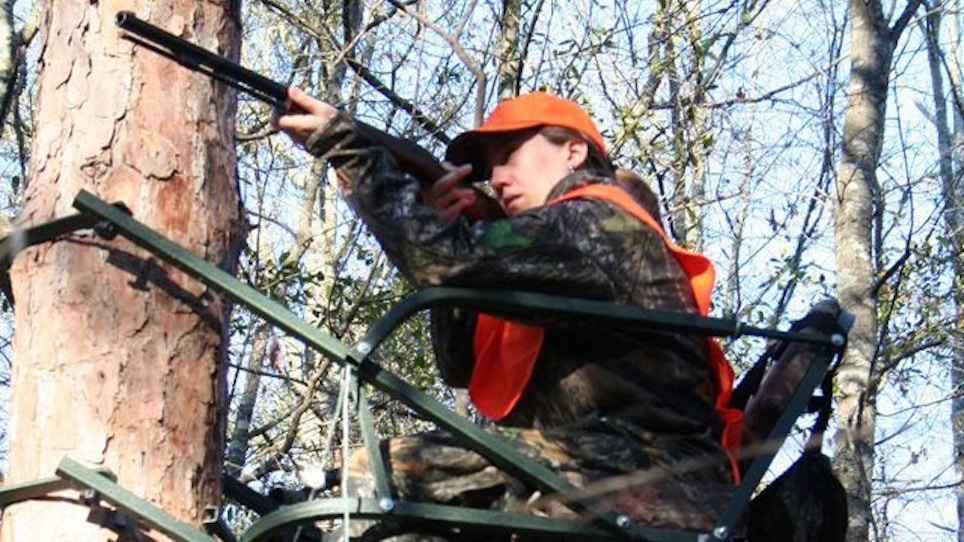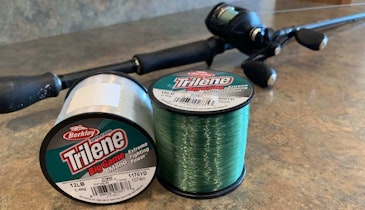By BOB FRYE | Pittsburgh Tribune-Review
WEST MIFFLIN, Pa. (AP) — You wouldn't know that Mike Crevar is a businessman.
There's no sign outside his West Mifflin gunsmith shop. Well, except for one: "No parking or loitering." His brother put that up for his next-door optical practice.
Step inside, though, and your first impression is that this might be a tattered old hunting shirt of an operation, worn and frayed at the cuffs.
The back wall is lined with vertical gun racks that hold almost no guns. The glass display cases in front of them are half stocked, but with Redfield scopes, a jumbled pile of hunting knives and gun-cleaning supplies that appear to have sat unmoved for years, given the sun-faded condition of their boxes. The remnants of past deliveries are stacked in another corner of the "showroom."
Ah, but don't you believe the notion that Crevar isn't busy or successful.
As one of a dwindling number of gunsmiths in the country, Crevar and his expertise remain in high demand by hunters, collectors and gun aficionados near and far.
"I took my sign down about 10 years ago, and then I took my name out of the phone book," said Crevar of Liberty. "The phone company for years would call me and ask, 'Why don't you put your name in the book? You've got a business.' And I'd say, 'I know, but I don't want any more customers; I'm just swamped as it is.'"
That's as true now as it was then.
His records show he made more than 65,000 repairs over the past 43 years. Things started slowly.
"My first five to seven years, I starved," Crevar said. "Nobody knew who I was."
A score of double handfuls couldn't hold all of the manila tags from this year's repairs, though. He usually has 75 guns in various states of repair in his shop at any given time.
Tools of the Trade
His work reveals him to be part artist, part mechanic.
Servicing the trap and skeet guns of serious competition shooters is his "bread and butter," Crevar said. But what makes him stand out is the restoration work he does for customers with old guns. They seek him out from Verona to North Carolina to Finleyville to Michigan to Clairton to Arizona.
"Guns made in the 1930s and '40s and '50s, they were the tools of the trade. People hunted with them. They were meat getters. If they got a bump or a bruise, they didn't worry about it," Crevar said.
"Now guys want to buy these guns, and they want them to look like new. The stuff like that, that other guys can't or won't fix, it comes to me."
In the second and third layers of his shop, he turns those guns into showpieces.
A back room holds machines: a stock duplicator, drill press, sandblaster, lathe and more. That's where the heavy, initial work often gets done.
In the middle room, stock blanks, imagine rough-cut rectangles of firewood, albeit worth as much as $3,000 each, rest on shelves below walls covered with chisels, files and other hand tools. Crevar turns those rough wooden chunks into stocks with checkering so fine, at 32 lines to the inch, that you almost have to turn them in the light to pick up the detail. He does silver inlays and engraving, and touches up the work on existing metal, too.
There are bins upon bins of parts, triggers, trigger guards, safeties, receivers. There are parts ordered from catalogs, parts picked up at gun shows and parts salvaged from jobs that he uses to rebuild the working organs of guns. He does that by hand, sanding and polishing pieces to fit perfectly.
"If you could look up old-world German craftsman in the dictionary, you'd find his picture next to it," said Bill Straub of O'Hara, a Crevar customer for 40 years.
Straub jokes that he "put Mike's daughter through school" because of all the work he's given Crevar over the years. But he won't go anywhere else.
"Oh, he's unique," Straub said. "When you get to that level of expertise and performance, it's special."
Patience Makes Perfect
Crevar doesn't necessarily work fast. If a competition trap shooter needs a repair for an upcoming shoot, he usually can get it done within a couple of days. But restocking a gun or doing a restoration can take six months to a year.
"That can drive you crazy, because when you give him a gun, you're like a little kid at Christmas. You can't wait to get it back," said Bill Lovell of Finleyville, a 34-year customer. "But I wouldn't want him to do it any other way.
"He's very meticulous. He'll work on something and know when to put it away and go work on something else for a while. It may take him two days or a week to pick it back up again, but that's because he won't rush it. When you start rushing things is when you make mistakes. And he's very patient."
Crevar knew early on that gunsmithing was for him: "I kept feeding from it, kept buying books, kept studying it. Then I'd go to bed at night and wouldn't dream about anything but fixing guns. I thought, boy, this is addictive."
He's not sure how much longer he'll keep at it. He feels good, and his hands remain steady, but he's 70 years old and a recent cancer survivor. He thinks about retiring.
His customers, those who can find him, aren't ready for him to pack away his tools.
"People always say, 'Before you die, I want you to make a stock for me,'" Crevar said.
"So, we'll see. I love to be here every day. I have a nice log home, a beautiful home, one that belongs in a magazine. I built it all myself. It took me five years, three months and six days. But I like being here more. That's why I'm here every day."
———
Online: http://bit.ly/K8m4En
Information from: Pittsburgh Tribune-Review, www.pghtrib.com






